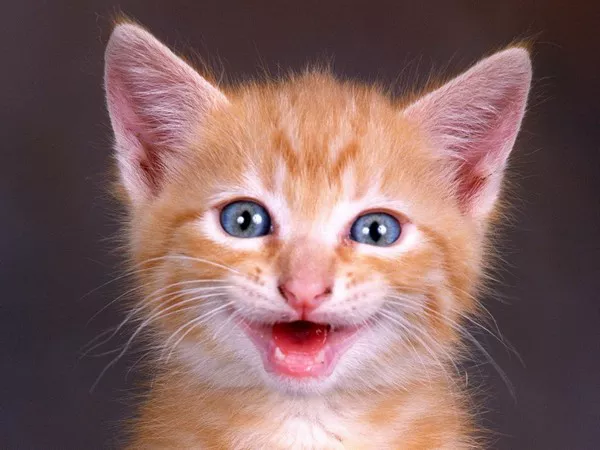As cat owners, we strive to provide the best for our feline companions, and nutrition plays a crucial role in maintaining their overall health and well-being. One of the most vital aspects of feline health is cardiovascular health. Heart disease is a significant concern in cats, particularly as they age, and diet can have a profound impact on heart function and overall longevity. In this essay, we will explore the importance of heart health in cats, the types of heart disease that can affect them, key nutrients that support cardiovascular health, and the best cat foods available to promote a healthy heart.
Understanding Feline Heart Health
The Importance of Heart Health
The heart is a vital organ that pumps blood throughout the body, supplying oxygen and nutrients to tissues and removing waste products. In cats, heart health is essential for maintaining energy levels, supporting organ function, and ensuring overall vitality. A healthy heart contributes to a cat’s quality of life and longevity.
Common Heart Diseases in Cats
Cats can suffer from various heart diseases, with the most common being:
Hypertrophic Cardiomyopathy (HCM): HCM is the most prevalent heart disease in cats, characterized by the thickening of the heart muscle, which can lead to decreased heart function and other complications.
Dilated Cardiomyopathy (DCM): Although less common in cats than in dogs, DCM is a condition where the heart becomes enlarged and weakened, affecting its ability to pump blood effectively.
Congestive Heart Failure (CHF): CHF occurs when the heart cannot pump enough blood to meet the body’s needs, leading to fluid buildup in the lungs and other tissues.
Valvular Heart Disease: This condition involves the malfunction of the heart valves, which can lead to blood flow issues and heart enlargement.
Risk Factors for Heart Disease
Several factors can increase a cat’s risk of developing heart disease, including:
Age: Older cats are more susceptible to heart disease.
Genetics: Certain breeds, such as Maine Coons and Ragdolls, are predisposed to HCM.
Obesity: Excess weight can strain the heart and contribute to various health issues.
Diet: Poor nutrition can exacerbate existing health problems and contribute to heart disease.
Nutritional Considerations for Heart Health
Feeding your cat a balanced diet rich in essential nutrients is vital for maintaining heart health. Here are some key nutrients that support cardiovascular function:
Taurine
Taurine is an essential amino acid crucial for heart health. Cats cannot synthesize enough taurine on their own, making it necessary to obtain it from their diet. Taurine helps maintain proper heart function, and a deficiency can lead to serious conditions such as dilated cardiomyopathy.
Omega-3 Fatty Acids
Omega-3 fatty acids, particularly EPA and DHA, are known for their anti-inflammatory properties and ability to support heart health. These fatty acids can help reduce inflammation in blood vessels and improve overall cardiovascular function. They are typically found in fish oil and certain plant oils.
Antioxidants
Antioxidants, such as vitamins E and C, play a crucial role in protecting the heart from oxidative stress. Oxidative stress can damage heart cells and contribute to the progression of heart disease. A diet rich in antioxidants can help mitigate these effects.
Coenzyme Q10 (CoQ10)
Coenzyme Q10 is a compound that helps produce energy in cells and has antioxidant properties. It is believed to support heart health by improving energy production in heart cells and reducing oxidative stress.
L-Carnitine
L-Carnitine is an amino acid that plays a role in fat metabolism and energy production. It helps transport fatty acids into the mitochondria of cells, where they can be converted into energy. Some studies suggest that L-Carnitine may have beneficial effects on heart health.
Fiber
A diet high in fiber can help maintain a healthy weight and reduce the risk of obesity, which is a significant risk factor for heart disease. Fiber also supports digestive health and can help regulate cholesterol levels.
Choosing the Best Cat Food for Heart Health
When selecting cat food to support heart health, it is essential to look for products that contain the key nutrients mentioned above. Here are some factors to consider when choosing the best cat food for your feline friend:
High-Quality Protein Sources
Cats are obligate carnivores, meaning they require animal-based proteins for optimal health. Look for cat foods that list high-quality animal protein sources, such as chicken, turkey, or fish, as the primary ingredient.
Balanced Nutritional Profile
Choose cat foods that provide a balanced nutritional profile, including the right proportions of protein, fat, and carbohydrates. The Association of American Feed Control Officials (AAFCO) sets guidelines for pet food nutrition, so look for products that meet these standards.
Presence of Heart-Healthy Ingredients
Select cat foods that include heart-healthy ingredients, such as:
Taurine: Ensure that taurine is included in the ingredient list, as it is essential for heart health.
Omega-3 Fatty Acids: Look for foods with added fish oil or flaxseed oil for omega-3 fatty acids.
Antioxidants: Foods with added vitamins E and C, as well as other antioxidant-rich ingredients like blueberries or spinach, can support heart health.
Grain-Free or Limited Ingredient Options
Some cats may benefit from grain-free or limited ingredient diets, especially if they have food sensitivities. However, it is essential to ensure that these diets still provide a balanced nutritional profile.
Prescription Diets
In some cases, your veterinarian may recommend a prescription diet formulated specifically for cats with heart disease. These diets are designed to manage specific health conditions and may contain specialized nutrients to support heart health.
Recommended Cat Foods for Heart Health
Here are some cat food brands and products that are known for their focus on heart health:
Hill’s Prescription Diet k/d Kidney Care
While primarily designed for kidney health, Hill’s k/d formula is also beneficial for heart health. It contains controlled levels of protein, phosphorus, and sodium, which can help manage heart disease in cats. The diet is enriched with omega-3 fatty acids and antioxidants.
Royal Canin Veterinary Diet Cardiac
Royal Canin’s Veterinary Diet Cardiac formula is specifically formulated for cats with heart disease. It features a balanced blend of nutrients, including taurine, omega-3 fatty acids, and antioxidants, to support heart function and overall health.
Blue Buffalo Wilderness Grain-Free
Blue Buffalo’s Wilderness line is high in protein and includes real meat as the first ingredient. The grain-free formula is rich in omega-3 fatty acids and antioxidants, making it a good choice for promoting heart health.
Wellness CORE Grain-Free
Wellness CORE Grain-Free formula is packed with high-quality protein and includes omega-3 fatty acids and antioxidants. This diet is designed to support overall health, including heart health.
Nutro Ultra Grain-Free
Nutro Ultra Grain-Free cat food features a blend of high-quality proteins and includes omega-3 fatty acids. It is formulated with a combination of superfoods, such as blueberries and spinach, which provide antioxidants for heart health.
Orijen Cat & Kitten
Orijen is known for its biologically appropriate cat food that focuses on high-quality ingredients. The Cat & Kitten formula is rich in protein and includes omega-3 fatty acids, making it beneficial for heart health.
Merrick Purrfect Bistro Grain-Free
Merrick’s Purrfect Bistro Grain-Free line features high-quality protein sources and is rich in omega-3 fatty acids and antioxidants. This diet supports overall health and is particularly beneficial for heart health.
Transitioning Your Cat to a Heart-Healthy Diet
If you decide to change your cat’s food to support heart health, it is essential to transition gradually to avoid digestive upset. Here are some steps to follow:
Mix the New Food with the Old: Start by mixing a small amount of the new food with your cat’s current food. Gradually increase the proportion of the new food over a week or two.
Monitor Your Cat’s Response: Keep an eye on your cat’s appetite, energy levels, and any changes in behavior. If you notice any adverse reactions, consult your veterinarian.
Maintain a Consistent Feeding Schedule: Establish a regular feeding schedule to help your cat adjust to the new diet. Consistency can help prevent overeating and maintain a healthy weight.
Consult Your Veterinarian: If your cat has existing health conditions, consult your veterinarian before making any dietary changes. They can provide recommendations tailored to your cat’s specific needs.
Conclusion
In conclusion, heart health is a critical aspect of feline well-being, and proper nutrition plays a vital role in maintaining a healthy heart. By understanding the importance of key nutrients such as taurine, omega-3 fatty acids, and antioxidants, cat owners can make informed choices about their pet’s diet. Selecting high-quality cat foods that support heart health and considering factors such as protein sources and balanced nutrition can significantly impact a cat’s longevity and quality of life.
As we strive to provide the best for our feline companions, prioritizing heart health through proper nutrition is an essential step in ensuring they lead long, happy, and healthy lives. By being proactive about our cats’ dietary needs and seeking veterinary guidance when necessary, we can help protect their hearts and enhance their overall well-being.
Related topic:



























